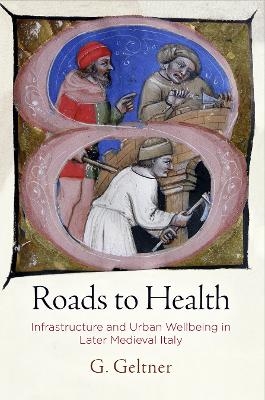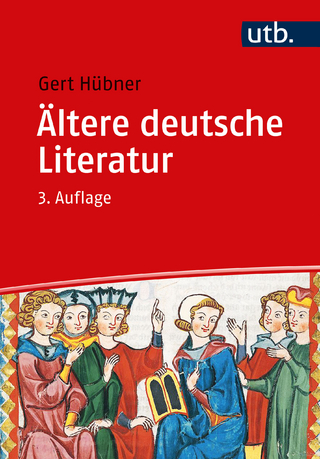
Roads to Health
University of Pennsylvania Press (Verlag)
978-0-8122-5135-7 (ISBN)
Roads to Health provides a critical overview of the mandates and activities of the viarii and camparii as enforcers of preventive health and safety policies between roughly 1250 and 1500, and offers three extended case studies, for Lucca, Bologna, and the smaller Piedmont town of Pinerolo. In telling their stories, Geltner contends that preventive health practices, while scientifically informed, emerged neither solely from a centralized regime nor as a reaction to the onset of the Black Death. Instead, they were typically negotiated by diverse stakeholders, including neighborhood residents, officials, artisans, and clergymen, and fostered throughout the centuries by a steady concern for people's greater health.
G. Geltner is Professor of History at the University of Amsterdam and author of several books, including The Making of Medieval Antifraternalism: Polemic, Violence, Deviance, and Remembrance, The Medieval Prison: A Social History, and Flogging Others: Corporal Punishment and Cultural Identity from Antiquity to the Present.
A Note on Dates, Currencies, Wages, and Prices
Rome, 1306: A Prologue
Introduction
Chapter 1. Roads to Health
Chapter 2. Lucca's Viarii
Chapter 3. Bologna's Fango Officials
Chapter 4. Piedmont's Camparii
Chapter 5. Healthscaping in Medieval Europe and the Premodern World
Conclusion
Appendices
1. Fines to Be Imposed by Lucca's Roads Masters
2. Text and Translation of Vernacular Promulgations by Lucca's Roads Masters
List of Abbreviations
Notes
Bibliography
Index
Acknowledgments
| Erscheinungsdatum | 16.07.2019 |
|---|---|
| Reihe/Serie | The Middle Ages Series |
| Zusatzinfo | 2 illus. |
| Verlagsort | Pennsylvania |
| Sprache | englisch |
| Maße | 152 x 229 mm |
| Themenwelt | Geschichte ► Allgemeine Geschichte ► Mittelalter |
| Geisteswissenschaften ► Geschichte ► Regional- / Ländergeschichte | |
| Studium ► Querschnittsbereiche ► Geschichte / Ethik der Medizin | |
| ISBN-10 | 0-8122-5135-0 / 0812251350 |
| ISBN-13 | 978-0-8122-5135-7 / 9780812251357 |
| Zustand | Neuware |
| Haben Sie eine Frage zum Produkt? |
aus dem Bereich


